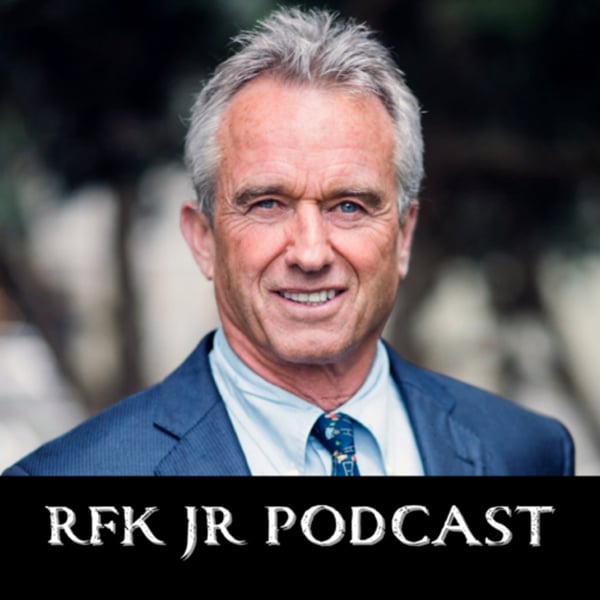Risk Info Management with Dr. Norman Fenton
RFK Jr Podcast
Robert Kennedy Jr
4.8 • 2.1K Ratings
🗓️ 13 April 2022
⏱️ 27 minutes
🧾️ Download transcript
Summary
Dr. Norman Fenton discusses risk information management with RFK Jr.
--- Send in a voice message: https://podcasters.spotify.com/pod/show/rfkjr/messageTranscript
Click on a timestamp to play from that location
| 0:00.0 | Hey everybody, our guest today is Dr. Norman Fenton who is a professor at risk information |
| 0:05.9 | management at Queen Mary University of London. He's a mathematician by training with a current |
| 0:11.1 | focus on critical decision-making and in particular on quantifying uncertainty using causal |
| 0:19.1 | probabilistic models that combine data and knowledge. And it's known as that system is known |
| 0:24.4 | as the base in networks. This approach can be summarized as smart data rather than big data. |
| 0:30.4 | It has applications in law and forensic. He's been an expert witness in major criminal and civil |
| 0:36.2 | cases, health, security, software, reliability, transport safety and reliability and finance and |
| 0:43.9 | support protection. His studies are available at NormanFenton.com and I wanted to have him because |
| 0:51.2 | he's had a, he's done a lot of work on the data that it's applicable to the COVID pandemic and he |
| 0:58.9 | has been very, very critical from an academic and so astic viewpoint of the government policies |
| 1:06.4 | and the use of data which is something that has been a preoccupation. I think of all of us who've |
| 1:11.6 | been following the countermeasure. So Dr. Fenton, your group at Queen Mary University of London has |
| 1:18.7 | applied itself to a range of challenges and when the COVID pandemic emerged, what kind of challenges |
| 1:25.8 | did you specifically see? Well, first of all, I mean, it was clear, I think from the start that |
| 1:32.0 | most of the data that governments put out, not just the UK government, but most governments around |
| 1:37.0 | the world about COVID and then later about the vaccines was kind of misleading because it was |
| 1:42.4 | based on very easily manipulated statistics. So initially, we saw there was an immediate rush to |
| 1:49.2 | draw conclusions which were sort of based on oversimplistic data on case numbers and deaths. |
| 1:55.2 | When instead there, we believe there was a need to look for causal explanations in the observed |
| 1:59.6 | data because that's the kind of work that we do. So the problem was that that data was very easily |
| 2:05.5 | used by influencers and decision makers to fit particular narratives that exaggerated the scale |
| 2:11.1 | of the crisis. So for example, people were concluding early on that neighboring countries in |
... |
Transcript will be available on the free plan in -1085 days. Upgrade to see the full transcript now.
Disclaimer: The podcast and artwork embedded on this page are from Robert Kennedy Jr, and are the property of its owner and not affiliated with or endorsed by Tapesearch.
Generated transcripts are the property of Robert Kennedy Jr and are distributed freely under the Fair Use doctrine. Transcripts generated by Tapesearch are not guaranteed to be accurate.
Copyright © Tapesearch 2025.

